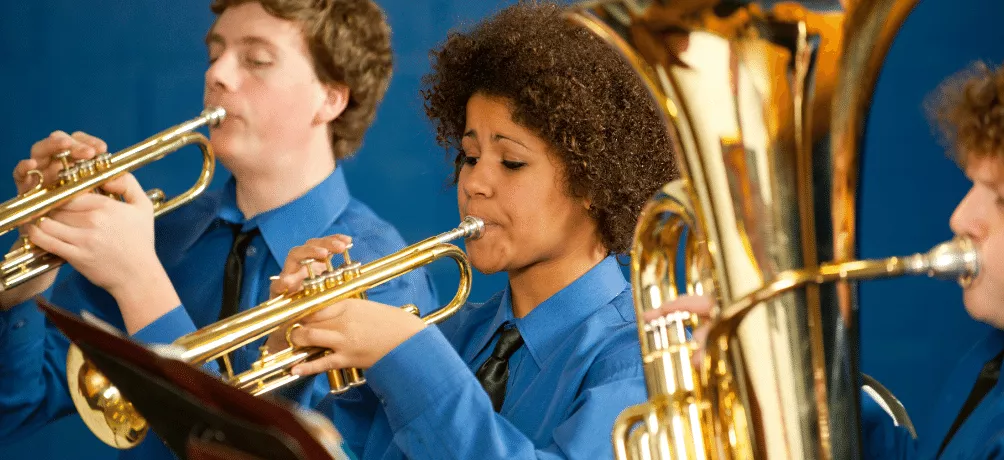How Do Colleges Look at Extracurricular Activities?
By Huntington Learning Center
Since the first day of high school, your student has received the advice that getting involved in extracurricular activities is a great resume booster. It’s true that colleges and universities like to see applicants spending their time on more than just school, but do they appreciate some activities more than others?
First things first: grades matter most
While extracurricular activities are a factor in college admissions, they are definitely not the most important—academic performance is! Grades, a solid GPA, and the strength of curriculum matter most to the admission officers evaluating your student. Course selection is a very big part of college admissions, so don’t let your student drop out of a higher-level course if they are struggling. Get tutoring help with Huntington as early in the school year as possible. We offer one-on-one subject-specific tutoring where your student can learn at their own pace. We help students work through any difficulties by focusing on core skills and keep them advancing through the tougher concepts. All it takes is one poor grade to hurt your student’s GPA and future college options. So, while your student should invest some time into their extracurriculars, their first priority should be succeeding in school.
Extracurriculars can tell a story
One of the most prestigious and selective colleges in the country, Harvard, has this to say about extracurriculars:
“Some students distinguish themselves for admission with their unusual academic promise through experience or achievements in study or research. Other students present compelling cases because they are more ‘well-rounded,’ having contributed in many different ways to their schools or communities. Still, other successful applicants are ‘well-lopsided’ with demonstrated excellence in one particular endeavor. Some students bring perspectives formed by unusual personal circumstances or experiences.”
Your student’s choice of extracurriculars tells a lot about who they are and what is important to them. These activities can highlight areas of passion or academic strengths. Alternately, they can showcase other interests your student has that might not otherwise be obvious on the application.
What colleges seek in extracurricular activities
Every institution is different, and some might “rank” certain activities higher than others. Generally, you can expect that colleges like to see these things in extracurricular activities:
- Achievement – Participation in an activity is beneficial, but when a student demonstrates success in that activity, that’s even better. This might include winning a national math competition or placing in the top two amongst teams in state football championships.
- Leadership – Serving as a team co-captain or officer of a club is an excellent way to demonstrate dedication. Going beyond that to help fundraise for that team/club shows enthusiasm and passion.
- Continued commitment – There are many pursuits that take persistence and practice over a long period of time. Playing a musical instrument, playing on the lacrosse team, or participating on the debate team, are a few examples, but there are many others. Joining a team or club as a high school freshman and continuing throughout all 4 years shows commitment and interest as well.
- Career interest – It’s always a bonus when students participate in extracurriculars that build skills, such as computer programming builds coding skills, that they will use not only in college but also in their careers. Activities that teach students to push through adversity, problem solve, think critically and learn from their mistakes tend to impress admission officers.
- Service – Some students have a heart for volunteering their time in their community—such as at a local animal shelter, nursing home or through community organizations such as scouts, and local food banks. This shows college admission officers their responsibility and empathy. It also proves to admission officers that your student is interested in having a positive impact someday.
- Passion and interest – It’s helpful to admission officers when they can see the student behind the application, and extracurricular activities do just that. A student’s musical pursuits (and participation in the high school marching band), participation in theater and acting classes, or participation on the dance team (and in dance classes before that) are examples of showing one’s personality and passion.
A Word on Quality Over Quantity
Extracurricular activities can strengthen a college application and show a school who your student is, and it is okay if your student doesn’t have a list of a dozen. In fact, colleges prefer quality over quantity—meaning, they want to see that your student is involved in activities that really matter to them, not just padding their resume.
So, instead of telling your student to sign up for every club or activity possible, encourage them to choose extracurriculars to which they will be committed. It’s better to be engaged in and excited about three or four activities than it is to be a member of eight or nine (but not very committed). Colleges consider extracurricular activities to be a great supplement to the resume. Not only are they good for your student’s profile, but they’ll also help them in life in many ways. Tell your student to get involved in a few things that interest and excite them and makes them happy.


